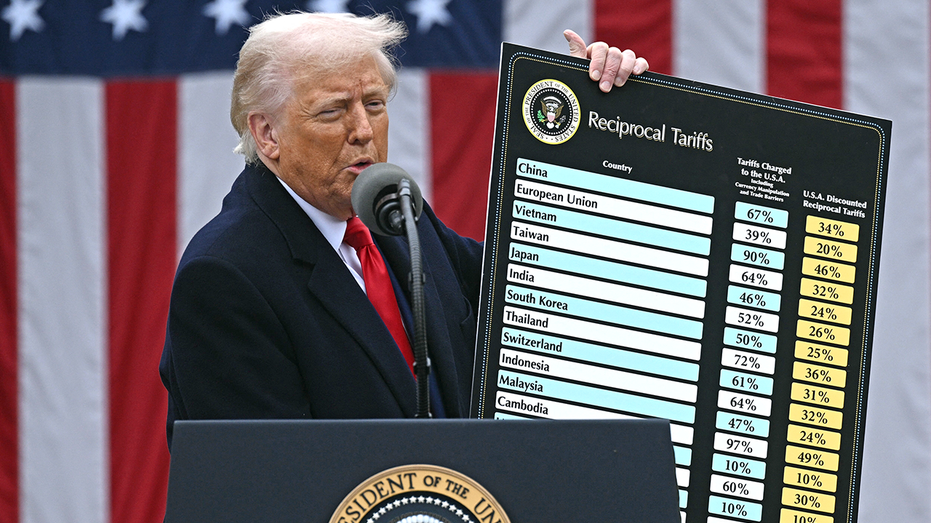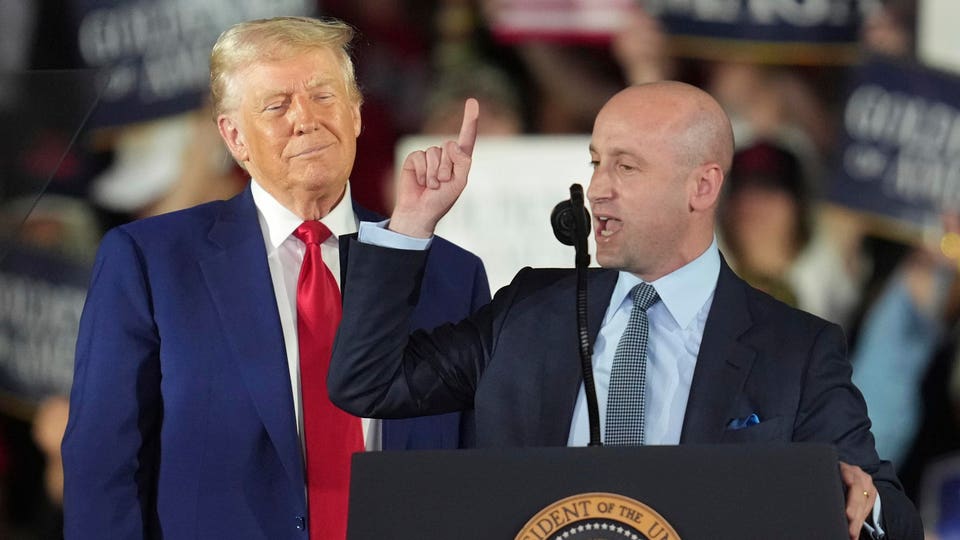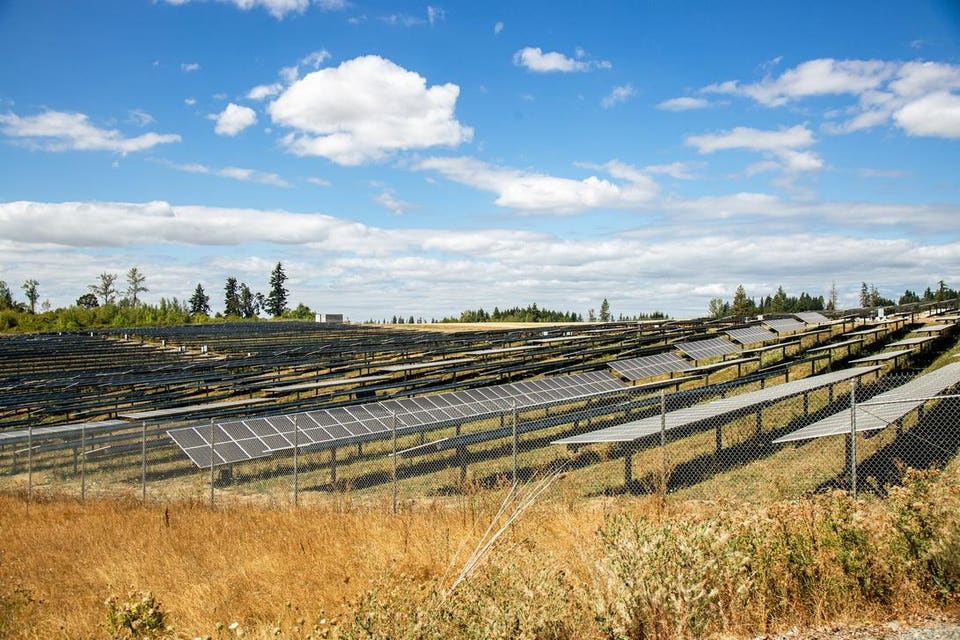President Donald Trump continues to promise that his tariff regime will usher in a new Golden Age for American workers with an explosion of high-paying manufacturing jobs across the Rust Belt and America. These tariffs will certainly drive up the costs of imports, hurting American consumers. As demand for foreign goods declines, the unfairly maligned trade deficit targeted by the president may indeed narrow. But more expensive imports also guarantee the supposed manufacturing renaissance will turn out to be fools’ gold for American workers and will not boost exports.
Contrary to popular belief, American exporters have enjoyed a manufacturing renaissance. Since 1994, American exports have nearly tripled, even after you adjust for inflation.
American goods exported exceeded $2 trillion last year. America’s aerospace industry now exports nearly $100 billion a year. The American automotive sector exports more than $160 billion annually, nearly doubling in inflation-adjusted terms since 1994. American soybean farmers supply livestock around the globe with feed. Each of these export-intensive sectors stands to lose jobs due to these tariffs.
US TRADE REPRESENTATIVE SAYS IT’S A MATTER OF ‘WEEKS’ BEFORE NEW TRADE DEAL ANNOUNCEMENTS
First, don’t expect an overall gain in American manufacturing jobs. Certainly, individual companies may benefit. A tariff on steel might save a few jobs at a specific steel mill. But the cost for every American manufacturer using this higher-priced domestic steel will also increase.
American manufacturing relies on a complex global supply chain utilizing imported parts. Automakers, construction firms and appliance makers all must pass this cost along — sometimes cutting wages or even jobs to stay afloat.
Numerous American companies have already begun laying off American workers in response to the tariffs, including at five Stellantis plants. Currently, up to 30% of North American auto production may be temporarily halted due to the tariff uncertainty. These headlines will become routine if the trade war continues.
American manufacturers, who export their American-made goods to the rest of the world, will fall behind as their input costs increase. This danger compounds as other nations retaliate against us by imposing their own barriers. As American exporters find their market shares shrinking and costs rising, American companies will see their profits plunge and American jobs vanish.
Second, the limited tariff-created manufacturing jobs will not be better paid jobs. Good-paying jobs are contingent on productivity. Higher tariffs lower labor productivity as less efficient businesses are protected from competition.
Thanks largely to the innovation and efficiencies from free trade, our jobs market has diversified away from a concentration of jobs in a lower-paying, physically demanding industry. The burgeoning sectors have supplied tens of millions of Americans with opportunities in safer professions.
Productivity overall of workers doubled in just the past 40 years. It’s not just investors or managers who benefit as resources yield more output. Workers share in this abundance of affordable, available and diverse goods.
Our so-called “trade deficit” has largely enabled this boom in newer, more productive jobs. The surplus dollars overseas generated by us importing more than we export flow back to the United States often in the form of foreign direct investment (FDI) in businesses here — exploding more than 500% compared to thirty years ago to more than $330 billion last year. If the president succeeds at eliminating this trade deficit, workers employed in these new jobs will suffer as foreign direct dries up.
Economic distortion caused by tariffs will shift jobs and resources to industries in which we lack a comparative economic advantage. As government policies deploy resources to less efficient businesses, more individuals will be forced to take these less desirable jobs.
The overall decline in business output translates not only to less profit; it yields less take-home pay and consumption for middle-class families. Workers will be harmed by this shift to lower-paying jobs.
Contrast this world of fewer, lower-paying jobs with a competitive environment which ensures that over time, each employee can produce more without working more. Business owners, employees and consumers all benefit. Higher prices on imported goods will not magically make American manufacturers more efficient or innovative. Quite the inverse!
By shielding them from competition, these businesses will grow complacent — with less incentive to improve, cut costs, and deliver better products at lower prices. As productivity declines, the standard of living for workers will also decline.
CLICK HERE FOR MORE FOX NEWS OPINION
The ingredients for a flourishing manufacturing sector are lower regulations, lower taxes and more freedom to trade with others. In fact, many jobs returned to the USA after the Tax Cuts and Jobs Act (TCJA) because America became more competitive with the rest of the world.
Embracing even part of this recipe has created a “Golden Age” for the past 40 years. Millions of people who would have previously worked in lower-paying factory jobs, now work in higher-paying, advanced services.
In fact, we now export far more of these services than we import. For this reason, the typical American family enjoys an annual income $26,000 greater than just one generation ago. A record percentage of young adults are participating in our stronger economy.
Tariffs are a roadblock to prosperity, not a highway.
We’ve been here before: Look at the Smoot-Hawley Tariff of 1930. It was meant to protect American industry, but it prolonged the Great Depression by choking global trade. The layoffs, price hikes, financial carnage and cratering approval ratings caused by this historic tax increase may cajole the president into soon relenting.
If not, the promised manufacturing jobs will come at the expense of jobs elsewhere and be far fewer in number than promised. We will produce less, consume less and earn less. The Golden Age will deliver nothing but fools’ gold: Politically caused scarcity in an age of abundance.
Joel Griffith is a senior fellow at Advancing American Freedom.

















Leave a Reply